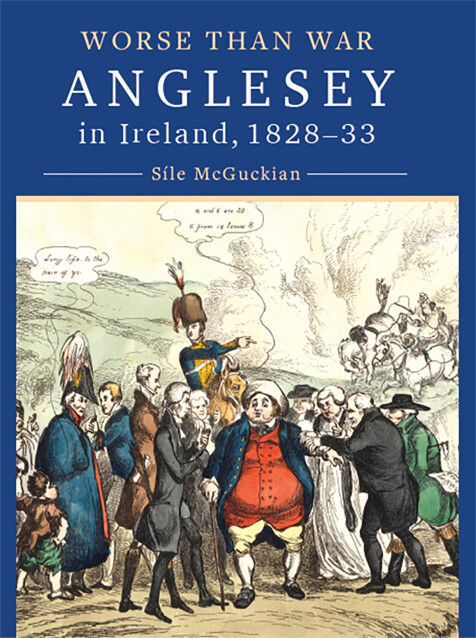Anglesey in Ireland, 1828 to 1833
Worse than War
Síle McGuckian
Henry Paget, 1st Marquess Anglesey (1768–1854), was a war hero who had fought alongside the duke of Wellington at the battle of Waterloo. A glamorous and engaging figure, when he was appointed lord lieutenant of Ireland in 1828 he had little previous political experience but was determined to govern the country in a fair and equitable manner. Within months of his arrival he faced the first of three political crises that were to threaten the ability of the British government to maintain its control of the country: the campaign for Catholic emancipation; parliamentary reform; and the abolition of tithes (the ‘Tithe War’). As Anglesey repeatedly grappled with widespread violence and incidents of insurrection, many members of the government feared that they were facing the possibility of revolution.
Anglesey’s actions in Ireland were to result in his firing by Wellington, who was then the prime minister. However, his support for Daniel O’Connell and the Catholic Association was to prove instrumental in forcing the government to bring forward Catholic emancipation in the spring of 1829. Appointed to the lord lieutenancy a second time under the government of Earl Grey, Anglesey supported the struggle for parliamentary reform and the passage of the Great Reform Act, 1832. As he sought to introduce further reforms for Ireland, he was confronted with the escalating conflict of the Tithe War. This book explores how the policies, opinions, and personal relationships between Anglesey and Wellington, O’Connell, Sir Robert Peel, Lord Grey, Edward Stanley, and others, impacted on the unfolding events during this time of crises and the long-term consequences that they had for both Britain and Ireland.
Síle McGuckian completed her undergraduate degree in law at Trinity College Dublin and then obtained a DPhil from the University of Oxford. She practiced as a lawyer before becoming a historian after completing a PhD in history from University College Dublin.


